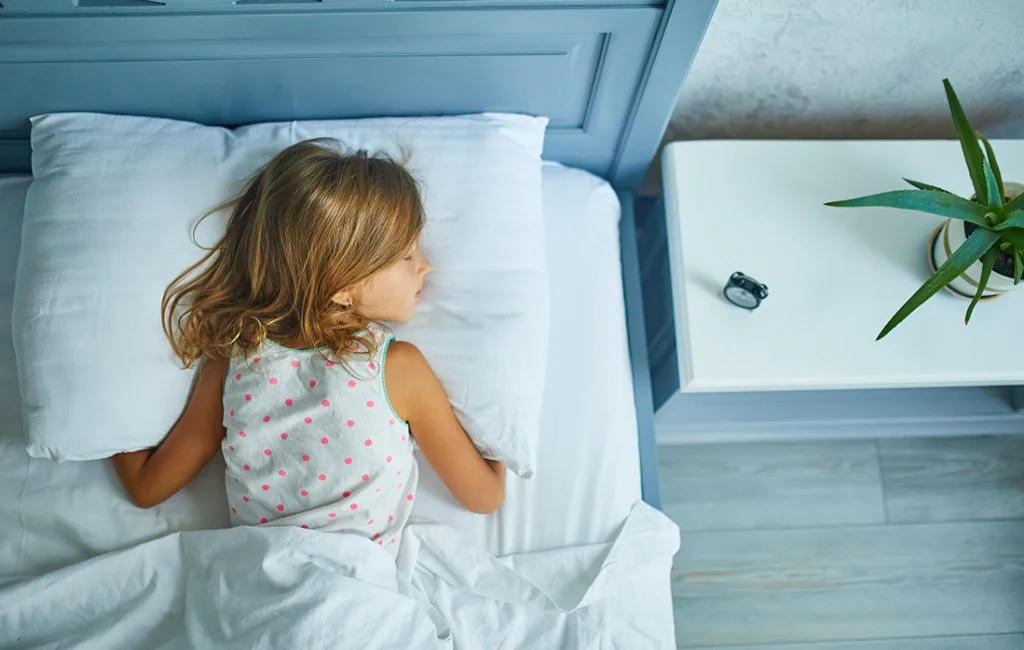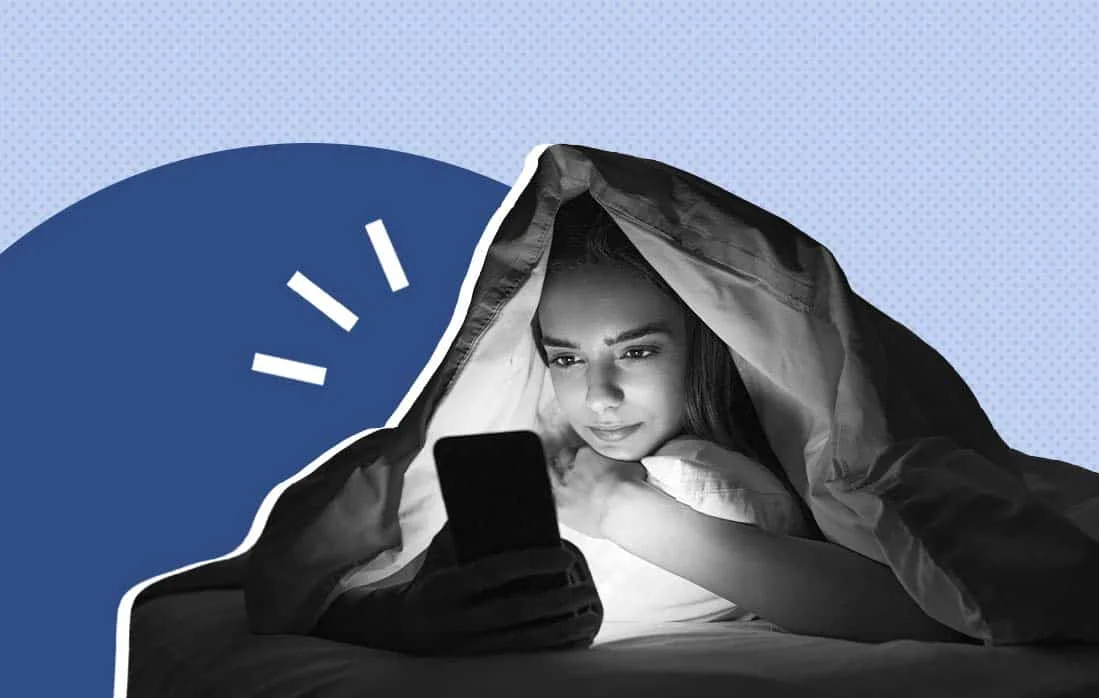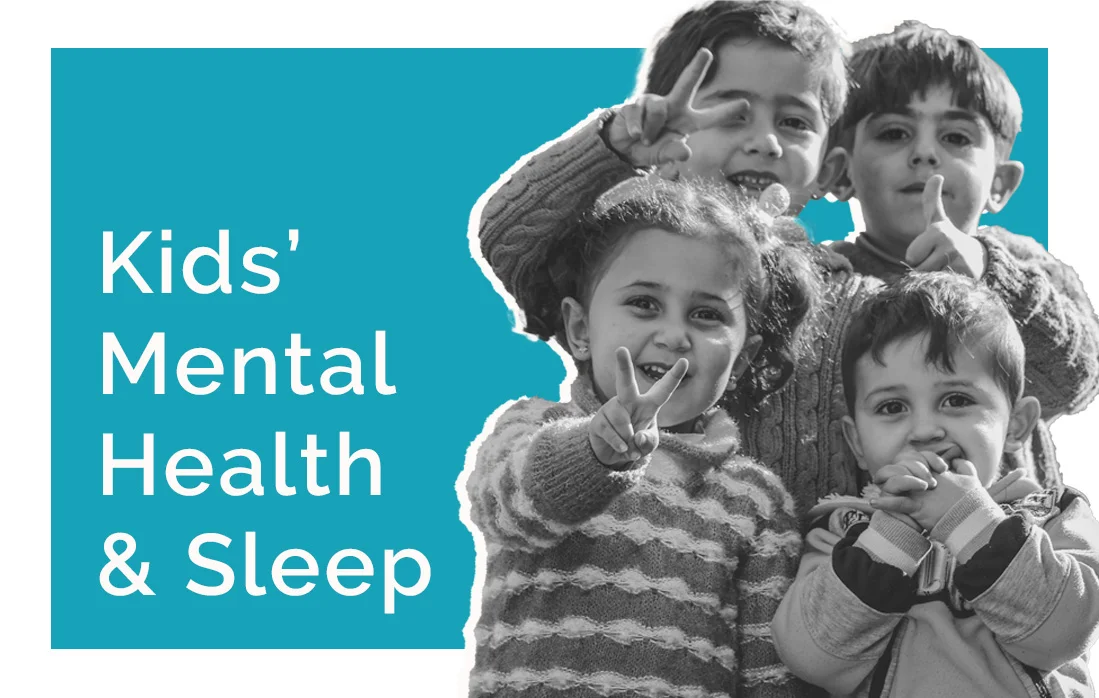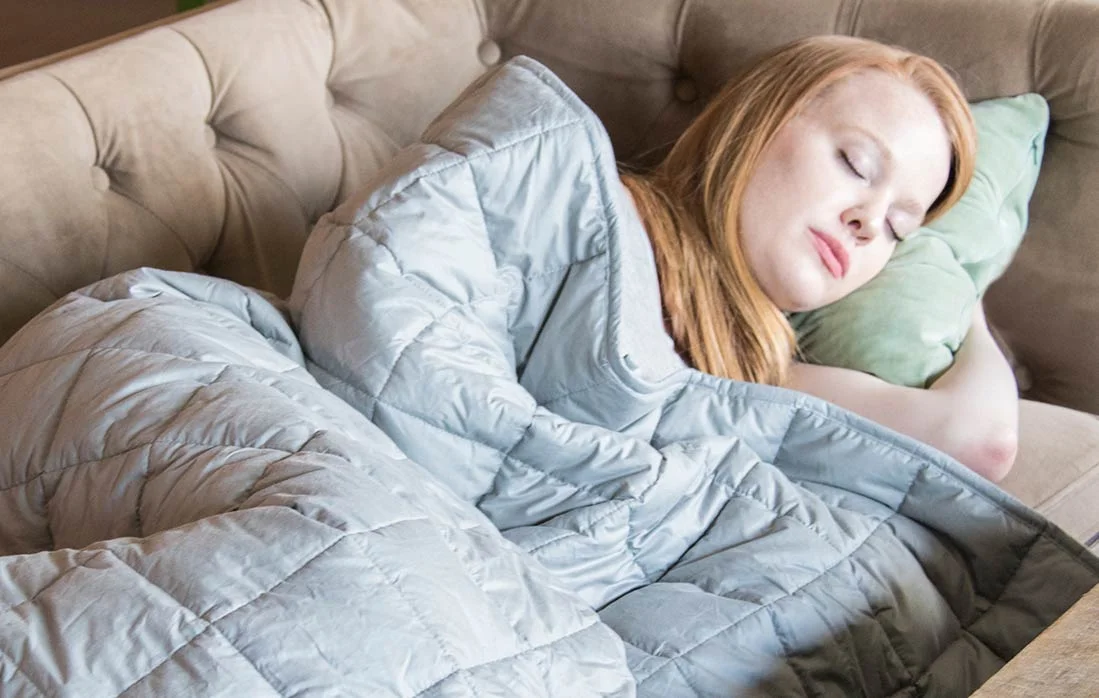
Up to 70 percent of kids with ADHD (attention deficit hyperactivity disorder) have trouble with sleep. As a group that already faces challenges with school, socializing, and home life, poor sleep can cause more issues, including sleepiness, worse ADHD symptoms, and behavior, and can jeopardize academic performance.
And while medications exist that can relieve some symptoms, non-pharmacological treatments are the first line of treatment recommended by experts and are often preferred by parents. So, it’s no surprise that researchers have been searching for solutions to sleep problems for children with ADHD, including weighted blankets — which have been shown to relieve anxiety and improve sleep disorders.
One new study published in the Journal of Sleep Research investigated the impact of weighted blankets on children with ADHD. Participants who used weighted blankets slept longer and more efficiently and moved around less during sleep than those who used a regular blanket. We spoke to a medical expert and a parent with a child who has ADHD for their opinions on weighted blankets.
How Weighted Blankets Can Help Kids With ADHD
Parents with kids who have ADHD likely know how tricky bedtimes can be. Research reveals the most common sleep disturbances for these families include resisting bedtime, trouble falling asleep and staying asleep, sleepiness during the day, and fragmented sleep, which can significantly impact mental health, stress, and family wellbeing.
Weighted blankets are sensory-stimulating tools that creates an enveloped feeling, like a soothing hug, and increases body awareness. For kids with ADHD, this sensation can provide relief from sleep troubles.
“The underlying mechanism of how weighted blankets work for ADHD is not entirely clear, but it is believed to be related to the concept of deep touch pressure (DTP),” explains Stewart Parnacott, Certified Registered Nurse and Instructor at Baylor College of Medicine.
DTP refers to a gentle, distributed pressure on the body, which can have a calming effect on the nervous system and is thought to promote the release of neurotransmitters like serotonin and dopamine, which are associated with mood regulation and relaxation.
“In children with ADHD, who often struggle with sensory processing and have difficulty self-regulating, the deep pressure provided by a weighted blanket may create a soothing and comforting sensation, helping them feel more relaxed and focused,” explains Parnacott.
Should You Try a Weighted Blanket For Your Child With ADHD?
“Based on the [Journal of Sleep Research] study’s data, trying a weighted blanket for a child with ADHD could be a worthwhile idea, especially if the child experiences sleep disturbances or restless behavior during sleep,” advises Parnacott.
For Lisa McCarty, a women’s health advocate for mental health and mom of a child with ADHD, it’s a priority for her kids to have the tools they need to feel comfortable and cope when struggling with anything.
“My 10-year-old daughter, who suffers from both a mild case of ADHD and anxiety, finds relief from her symptoms with her weighted blanket and weighted stuffed animal,” says McCarty. “She finds it hardest to pause the ruminating thoughts before bed, and this definitely helps to tell the body it’s time for a break and to rest,” she adds.
Improving sleep quality can positively impact the daily functioning and behavior of kids with ADHD, but not all kids will respond the same way to weighted blankets, and not all children with ADHD may find them helpful, according to Parnacott. Consulting with a healthcare professional, such as a pediatrician, pediatric nurse practitioner, or occupational therapist, can provide personalized guidance on whether a weighted blanket would be appropriate for a specific child.
In previous research, parents of kids with ADHD reported that children sleeping with weighted blankets fell asleep faster, slept more continuously, and had better sleep routines. According to these parents, the result was improved overall well-being, better relaxation, lower anxiety, more balance and family function, and increased participation in school and leisure activities.
While the parent’s experience was anecdotal, using self-reporting, the new study published in the Journal of Sleep Research backs up these findings and suggests weighted blankets are indeed a valuable tool for promoting sleep in kids with ADHD.

ASMR Video Creators Claim They Can Put You to Sleep In Less Than 10 Minutes, But What Do Experts Say?

A Complete Guide to Kids’ Mental Health and Sleep

Best Weighted Blankets (2026), Our Choices for Cocoon-Like Comfort

Are Weighted Blankets Better Than Melatonin at Helping You Sleep? Here’s the Science Behind How They Work
Sources
Larsson I, Aili K, Nygren JM, Jarbin H, Svedberg P. Parents’ Experiences of Weighted Blankets’ Impact on Children with Attention-Deficit/Hyperactivity Disorder (ADHD) and Sleep Problems—A Qualitative Study. International Journal of Environmental Research and Public Health. 2021; 18(24):12959. https://doi.org/10.3390/ijerph182412959
Lönn, M., Svedberg, P., Nygren, J., Jarbin, H., Aili, K., & Larsson, I. (2023). The efficacy of weighted blankets for sleep in children with attention-deficit/hyperactivity disorder—A randomized controlled crossover trial. Journal of Sleep Research, e13990. https://doi.org/10.1111/jsr.13990
Martins R, Scalco JC, Ferrari Junior GJ, Gerente JGDS, Costa MDL, Beltrame TS. Sleep disturbance in children with attention-deficit hyperactivity disorder: A systematic review. Sleep Sci. 2019 Oct-Dec;12(4):295-301. doi: 10.5935/1984-0063.20190088. PMID: 32318251; PMCID: PMC7159075.
Parnacott, Stewart. Author interview. July 2024.
McCarty, Lisa. Author interview. July 2024.


























